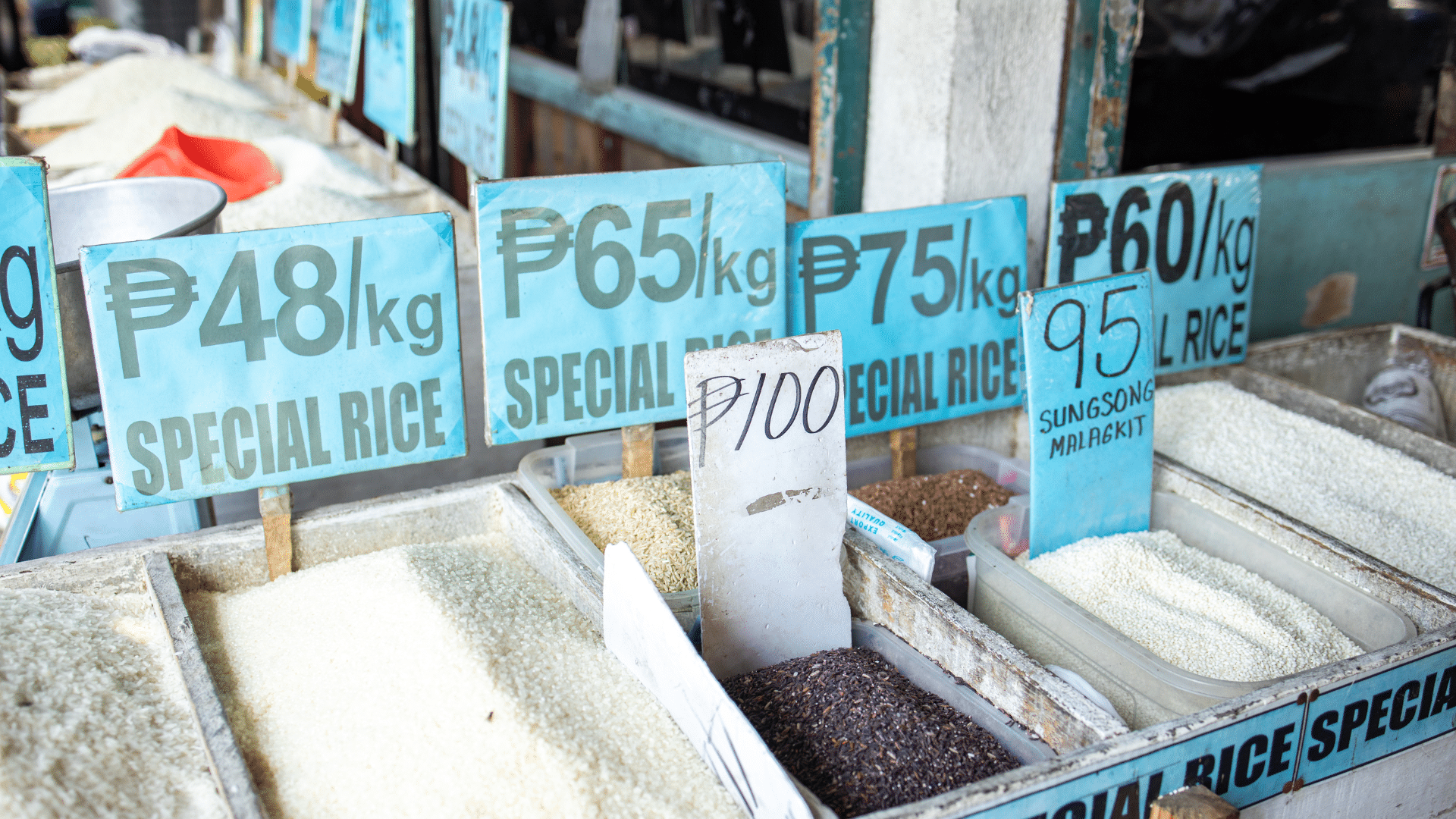
STOCK PHOTO
MANILA, Philippines — The Department of Agriculture (DA) has faced tongue-lashing at the House of Representatives for its alleged reliance on rice importation, as the country is expected to have a four million metric ton (MT) deficit for 2024.
During the House committee on appropriations hearing on Monday regarding DA’s proposed budget for 2025, Agri party-list Rep. Wilbert Lee proposed renaming DA into “Department of Importation” because the agency will rely on importation again to fill in gaps in rice production.
READ: Sona 2024: Marcos admits economic gains mean little with high prices
Lee was asking Agriculture Secretary Francisco Tiu Laurel Jr. if the target production of 26 million MT of rice for 2025 will be enough, given that when the government targeted 24 million MT for 2024, it fell short and needed to import over two million MT.
“Mr. Chair, Mr. Secretary, two million increase, would it be enough? Because this year, we saw that we were short by almost four million metric tons. So, will it be enough for us to cover the factors that led to the increase in production?” Lee asked.
“Because my premise is, if we know that we fell short before, then what are we doing? Are we designing it for importation that’s why we would not increase our rice production? So, would it be proper if I would say that we are looking at importation as a solution again? So maybe we shouldn’t call it DA, just DI, Department of Importation,” he added.
Laurel clarified that he himself is against importation but the budget is limited, adding that they would just maximize production with what they currently have.
READ: Agri damage from El Niño balloons to P15B
“Mr. Chair, well, definitely, I am against further or increasing importation. That’s why I think I was hired to do this job, but definitely, our budget is not enough […] But, that is already there, we will just use it wisely to increase production and avoid importation. One thing we really have to invest in besides production is on post-harvest,” the DA chief noted.
When Gabriela party-list Rep. Arlene Brosas asked Laurel about rice production and problems that affected it, Laurel said that weather phenomena — El Niño in the first half of 2024 and La Niña into the second half — coupled with population growth have hampered farming.
“Mr. Chair, because for this year we were hit by El Niño and in the second half, La Niña, we’re hoping for parity versus last year. That is my reasonable view which at least it would be the same as last year, 20-point something (MT) […] because of what happened with El Niño our production actually decreased, and second half with water now hopefully it would increase we’re hoping it would be the same as 2023, which is 20.1 million metric tons of palay,” Laurel said.
“So it’s a plan, multi-faceted plan, but of course we also have to consider that we will have an ever-growing population eh, we have a moving target, if our population will not increase, I guess we can reduce importation, but with our growing population at 1.0 to 1.2 million more people a year, it’s a very hard thing, it seems DA is always playing catch-up, that’s the reality, Mr. Chair,” he added.
ACT Teachers party-list Rep. France Castro meanwhile said that the weather phenomena and other issues cannot be used as excuses because in the Philippines, these are already constant variables which the DA must prepare for.
“Well you know, that is not something that happens by magic, these are constant variables, El Niño, La Niña, and the increase of our population that we have to address. We should not say that because of El Niño, this happened, what we want to do is to increase production,” Castro said in Filipino.
“These variables are already given when it comes to the Philippines, we have 20 cyclones yearly, we have faced drought. So the DA and the government should have prepared for that, Mr. Chair,” she added.
Last June 2024, the United States Department of Agriculture (USDA) Foreign Agricultural Service estimated that the Philippines’ rice imports would reach 4.6 million MT in 2024 — making the country the biggest rice importer in the world.
USDA said that this 4.6 million MT rice imported for 2024 would be 27 percent higher than the 3.6 million MT imported in 2023.
In his most recent State of the Nation Address, President Ferdinand Marcos Jr. said that the Philippines was able to produce the biggest amount of rice since 1987, at 20 million MT — touting it as a step towards rice self-sufficiency.
The Chief Executive however noted that these gains and other economic improvements mean nothing if the government cannot lower the prices of goods for the people to enjoy.

